Do you have an upcoming presentation and are trying to decide between a Sony or Epson projector? Being informed about the differences between these two high-quality projectors is important for getting the most out of your investment. Whether you’re searching for the ultimate home cinema experience or just want to pep up presentations at school, this article will help guide you through all of the features each projector offers.
Weighing factors such as brightness levels, compatibility with other devices, cost and more will get you closer to selecting which model makes sense best for your purpose. Explore these projectors and discover which one is right for you!
What projector manufacturer is better: Sony vs. Epson?
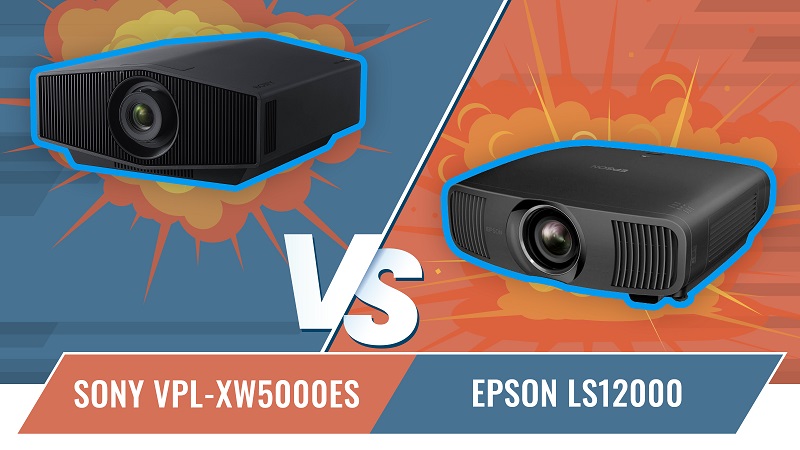
Both Sony and Epson are highly respected projector manufacturers and each has its own advantages.
Sony produces projectors that feature high-end features such as 4K resolution, HDR support, advanced motion processing, and a wide array of connectivity options. The downside is that Sony’s projectors can be quite expensive compared to the competition.
Epson on the other hand tends to offer more affordable projectors with a range of different models for different applications. Their projectors tend to lack some of the higher-end features found in Sony’s models but they still provide excellent image quality and good brightness at lower price points.
The best projector manufacturer for you will depend on your budget, what type of projection you plan to use, and what features are most important to you. Sony’s projectors offer a wide range of features and excellent image quality but they come at a premium price. Epson’s projectors are generally more affordable with fewer features but still provide good performance for the money. Ultimately, it comes down to what best fits your needs.
In conclusion, both Sony and Epson are excellent projector manufacturers that offer reliable products for different applications. The choice between the two will ultimately depend on budget considerations and which features are most important to you. Both brands have their advantages so it is wise to do some research before making a purchase decision.
Pros and cons of Sony Projectors
Sony projectors are one of the most reliable and popular brands in the world. They have a wide range of projectors to choose from, offering various features and benefits. But like any other product, there are both pros and cons associated with Sony projectors.
Pros:
- Great picture quality: Sony projectors are known for their bright colors and sharp images, even in brightly lit rooms. This makes them ideal for home theaters or presentations where you need to make sure everyone can see what’s being projected clearly.
- Easy to use: Sony makes it easy for anyone to set up and operate their projector quickly without having to read through too many instructions or manuals.
- Affordable prices: The range of Sony projector models includes options to fit almost any budget, making it possible to get a great quality projector without breaking the bank.
- High brightness and contrast: Sony projectors deliver a very high level of brightness and contrast for an improved viewing experience. Whether you are in a conference room or watching a movie in your home, Sony projectors produce vivid visuals with great clarity.
- Long-lasting lamps: Most Sony projectors come with a long-lasting lamp life of up to 10,000 hours, ensuring that you won’t need to change lamps too often. This saves time as well as the money associated with having to replace the bulbs regularly.
- Versatile features: With various features such as lens shift, 3D compatibility, and digital keystone correction, Sony projectors provide versatility when it comes to setting up and adjusting the projector.
Cons:
- Limited connectivity options: While most of Sony’s projectors come with a variety of inputs, they are limited compared to some other brands. This may be an issue if you need multiple connections simultaneously or have older equipment that requires different ports.
- Bulky design: Sony projectors tend to be quite bulky, which can make them difficult to transport or move around. This could be an issue for those who require portability in their projector setup.
- High replacement costs for lamps: Sony’s replacement lamps can be expensive when compared to other brands, so this is something to keep in mind when budgeting for your projector purchase [1].
Pros and cons of Epson Projectors
Epson projectors offer a great variety of features and specifications to meet the needs of all users. Here are some pros and cons that can help you decide if an Epson projector is right for your needs.
Pros:
- High-quality images with excellent resolution and bright, vivid colors.
- Wide range of models to choose from, including both home theater projectors and business projectors.
- Easy to set up and use with intuitive user interfaces.
- Many models come equipped with features such as a split screen or picture-in-picture capabilities.
- Durable construction ensures long-lasting performance and reliability.
- Many models have built-in speakers for easy multimedia playback.
Cons:
- Higher price tag compared to many other types of projectors.
- Bulky and heavy designs make them difficult to transport or move around.
- Many models use a lot of energy, resulting in higher electricity bills.
- Limited warranty coverage for some models is a concern for some users.
- Not all models are compatible with newer Blu-ray and 4K Ultra HD technologies.
Overall, Epson offers a great selection of high-quality projectors that can meet the needs of any user, whether you’re looking for home theater or business presentation needs. The main downside is the higher price tag compared to other projector brands, but if you’re willing to invest more money upfront, you’ll get a great product that will last for years to come [2].
Comparison of Sony vs. Epson Projectors
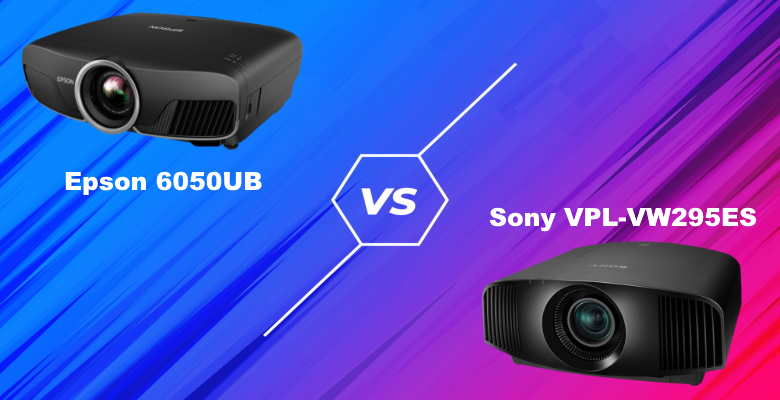
Contrast
When it comes to contrast, Sony projectors offer higher contrast levels than those offered by Epson. The difference, in contrast, is that Sony uses their advanced BrightEra technology, which helps to provide a more detailed image with deeper blacks and brighter colors. On the other hand, Epson relies on its 3LCD technology which produces an average picture quality with good colors but not quite as deep or rich as what you would find with Sony’s product lineup.
Brightness
Sony projectors also typically have higher brightness capabilities than Epson models, allowing for easier viewing in bright rooms. This is especially important for business presentations where natural light can often be a problem. The increased brightness capability of Sony models allows them to project a bright and clear image no matter what the ambient light is.
Epson, on the other hand, offers decent brightness levels but they do not compare to those of Sony’s lineup. This can lead to difficulty viewing in rooms with higher levels of ambient light or when displaying images with large amounts of white space.
Connectivity
Both Sony and Epson projectors offer ample connectivity options ranging from HDMI inputs for digital devices to VGA ports for older equipment like laptops or gaming consoles.
Additionally, some of the newest Sony models offer wireless capabilities, allowing you to stream content directly from your laptop or mobile device.
Price
When it comes to price, Sony projectors tend to be more expensive than those offered by Epson. While this may be a hurdle for some potential buyers, the increased performance and features of Sony often justify their higher costs. On the other hand, Epson models are usually much more affordable and provide decent performance for most home theater applications and business presentations.
Light output
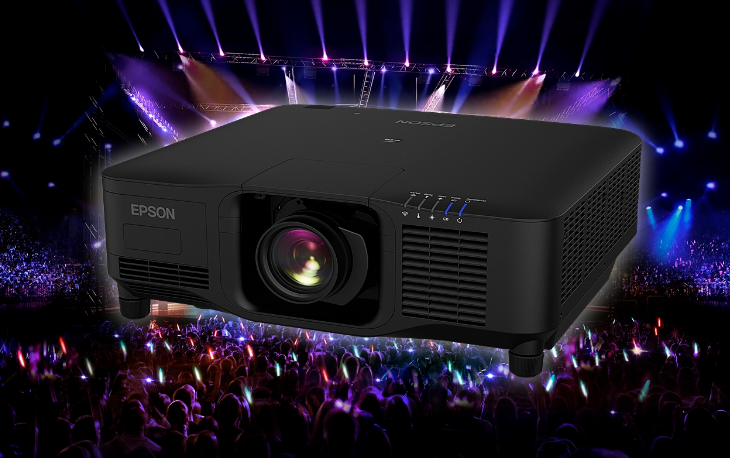
The final difference between Sony and Epson projectors is the amount of light they can produce. Sony models typically offer better light output than their Epson counterparts, allowing them to produce a brighter image even in larger rooms. This makes them ideal for home theater applications where you want to get the most out of your viewing experience.
Image Resolution
Another key difference between Sony and Epson projectors is the image resolution they can provide. Sony models typically offer higher resolutions than Epson, allowing for a more detailed and immersive viewing experience. However, this does come at a cost as Sony projectors tend to be more expensive due to their increased performance capabilities.
Viewing distance
The last major difference between Sony and Epson projectors is their optimal viewing distance. Sony models offer a longer viewing distance than those offered by Epson, meaning you can place the projector further away from the screen for a larger image size. This makes them ideal for business presentations where you want to capture the attention of an entire room as well as home theater applications where you need a large image size.
3D Capability
When it comes to 3D capability, Sony offers an advantage over Epson. Their models are compatible with most 3D content while Epson only supports a limited range of media formats. This makes Sony the preferred choice if you’re looking for a projector that can support
3D content.
Anamorphic Widescreen and Lens Memory
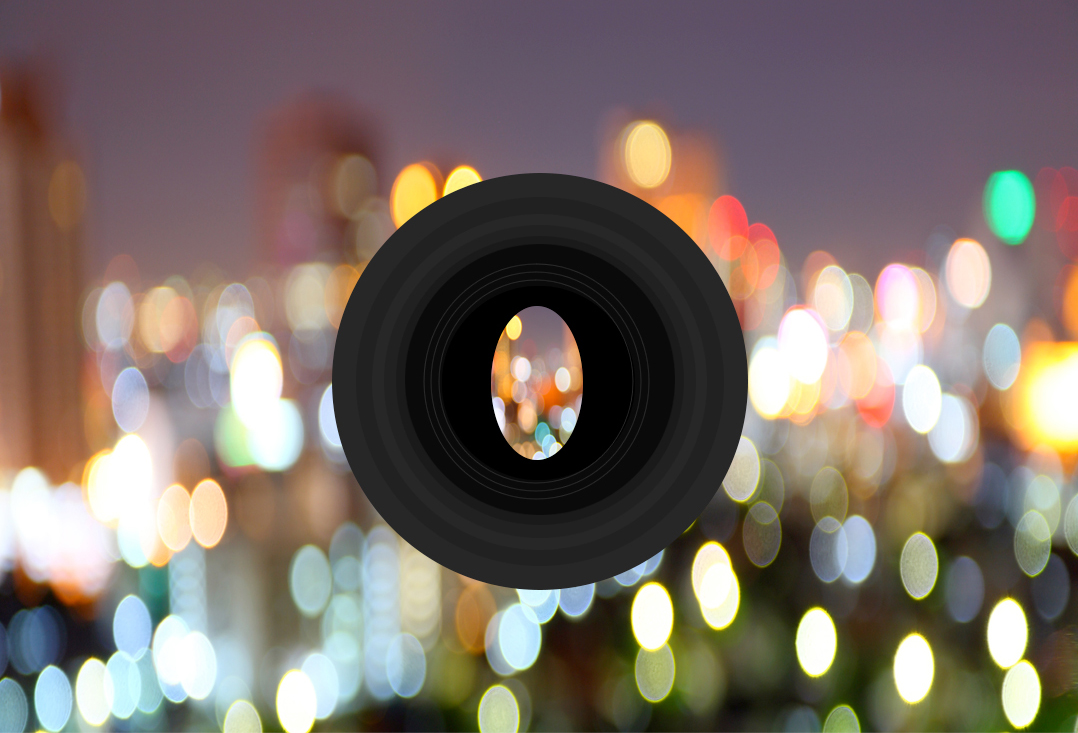
For those who want the most immersive home theater experience, Sony and Epson both offer anamorphic widescreen capabilities. This allows you to watch movies in their original cinematic aspect ratio without any distortion or stretching of the image.
Additionally, some Sony models come with a lens memory feature that lets you store up to five different zoom settings so you can quickly switch between them when watching different types of content.
Input lag
When it comes to input lag, Sony and Epson projectors both offer decent performance. However, Sony models tend to be slightly faster when it comes to displaying images. This can make a difference for gamers who need quick response times to perform well in competitive gaming environments.
Audible noise
Finally, the audible noise created by Sony and Epson projectors can differ. Sony models tend to be quieter than those offered by Epson, allowing you to enjoy a more peaceful viewing experience even when the projector is running at full brightness. Ultimately, this will depend on which model you choose as some of the higher-end Sony and Epson projectors are designed to run quietly [3].
How do Sony and Epson projectors work?
Sony and Epson projectors employ DLP (Digital Light Processing) or LCD (Liquid Crystal Display) technology to project images onto a flat surface, such as a wall or screen. Both technologies use tiny mirrors or LCDs to redirect light from the projector’s lamp through lenses that focus the image on the desired surface. Sony and Epson projectors can also produce 3D images using special glasses, which contain liquid crystals that switch between two different polarized lights at high speeds.
By alternating between the two different polarizations of light, a stereo-depth effect is created, providing an immersive viewing experience.
In addition to projecting still images, modern Sony and Epson projectors are capable of streaming video content directly from an internet-connected device. The projector has built-in Wi-Fi and Ethernet ports, allowing users to easily connect their laptop, tablet, or smartphone for a seamless streaming experience. This makes it easy for users to watch movies, play video games, and share presentations without the need for cords or cables.
Finally, Sony and Epson projectors come with several user-friendly features such as auto brightness adjustment and keystone correction which allows the user to correct any distorted shapes that may occur due to incorrect projection angles. These features make it easy for even novice users to get the most out of their projector experience.
With these features combined with their high-quality image reproduction capabilities, Sony and Epson projectors have become invaluable tools in many classrooms, offices, and even homes. Whether you’re looking to watch movies, play video games, or show off your latest presentation slides – Sony and Epson projectors have you covered.
What are some common uses for Sony and Epson projectors?
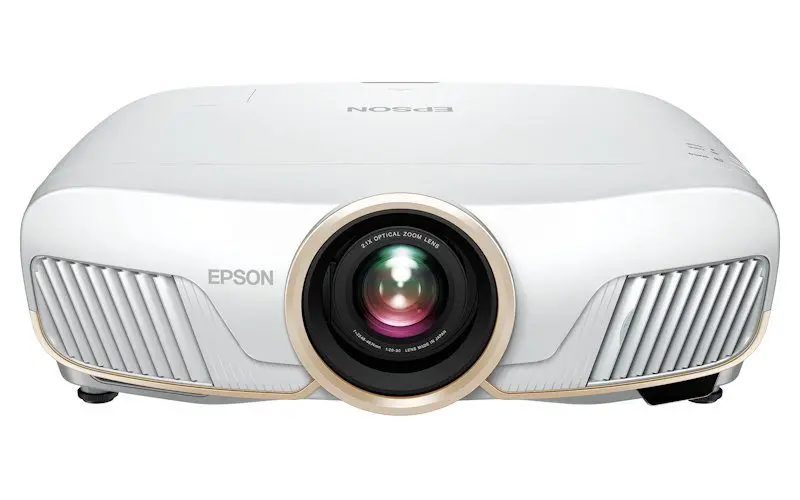
Sony and Epson projectors can be used for a variety of applications, from business presentations in the office to movie nights at home. They’re also extremely useful in classrooms, as they allow teachers to easily display images or videos to their students while keeping everyone engaged with their content. As mentioned before, many Sony and Epson models come with Wi-Fi or Ethernet connectivity so that users can easily stream media directly to the projector from their computer or another device.
And with some models, you can even connect your projector to a TV for larger-scale presentations. Additionally, Sony and Epson projectors are ideal for video gaming, as they offer an immersive experience that can’t be matched by any normal monitor or television screen.
Finally, these projectors are often used in theaters and auditoriums due to the high image quality and large projection size that they provide.
Regardless of what type of application you’re using it for, Sony and Epson projectors offer versatile technology that makes them ideal for both business and entertainment purposes. No matter what type of environment you’re in – whether at home or the office – Sony and Epson projectors will make sure that everyone can see what you’re presenting.
FAQ
Why are Epson projectors the best?
Epson projectors are the best because they offer superior image quality, brightness, and reliability. They also come with a wide range of features such as a high dynamic contrast ratio, advanced color processing, and energy-saving modes. All their models have been designed to provide excellent performance in most scenarios including classrooms, conference rooms, home theaters, and more.
Additionally, Epson projectors provide great value for money when compared to other brands so you can be sure that you’re getting the most bang for your buck. With Epson’s commitment to innovation and customer service satisfaction, you can be confident that your projector will last for years to come!
What is the best way to set up an Epson projector?
The best way to set up an Epson projector is to follow the setup instructions that are included in the product manual. This will ensure that you get the best possible performance out of your projector. It’s important to make sure all cables and connections are in place before powering on your device as this can help reduce any potential issues.
Additionally, be sure to adjust the settings such as brightness, contrast, and color temperature so that you can truly enjoy your viewing experience!
Are there any additional accessories I should consider for my Epson projector?
Yes, there are several accessories available for Epson projectors that can enhance your viewing experience. Depending on the model you have purchased, some additional items may include a remote control, wall mount, power cord, and various cables. You may also want to look into investing in a projector screen which can help you get the most out of your device. Additionally, if you are looking for a truly cinematic experience, consider purchasing an audio system so that you can enjoy surrounding sound when watching movies or shows!
Is Full HD better than a 4K projector?
It depends on what you’re looking for. If you want the highest level of detail and clarity, then a 4K projector is the way to go. However, if you are simply watching movies or shows in a smaller space, then Full HD will be more than enough to provide an immersive viewing experience. Additionally, 4K projectors may be more expensive than their Full HD counterparts, so it’s important to consider your budget before making a purchase.
Are Epson projectors compatible with other devices?
Yes! Epson projectors are designed to be compatible with most modern devices including laptops, tablets, and smartphones. Additionally, many models come equipped with HDMI connectivity which allows users to easily connect their devices to the projector. This makes it simple to quickly and easily share content without having to worry about compatibility issues.
What type of warranty does Epson offer?
Epson offers a one-year limited warranty for most of their projectors that covers defects in materials and workmanship. Additionally, many models come with an extended warranty which can help protect your purchase for up to three years. Be sure to review the product manual for further details on coverage as well as contact information should you ever need assistance with your device.
How long do Sony projectors last?
Epson projectors are designed to provide years of reliable performance. With proper care and maintenance, many users can expect their projector to last anywhere from three to five years or more depending on the model and usage. Be sure to familiarize yourself with the product manual so that you know how to best care for your device to extend its life. Additionally, be sure to check out Epson’s other extended warranty options for even more peace of mind!
What is the most advanced projector in the world?
Currently, the most advanced projector in the world is the Sony VPL-VW885ES True 4K HDR Home Theater Projector. This advanced model offers up to 8 million pixels for clear and detailed images and utilizes Sony’s TRILUMINOS Display technology which helps provide sharp colors with high contrast levels.
Additionally, this projector comes equipped with a 3000 lumens brightness rating and supports 4K resolution for true cinematic viewing. It also has various inputs for easy connection to other devices. Despite its impressive specs, it does come at a rather hefty price tag of around $25000.
Does Epson make a true 4K projector?
Yes, Epson does make a true 4K projector. The model is called the Epson Home Cinema 5050UB and it is designed to deliver an incredible level of detail with up to 8 million pixels. It also utilizes Epson’s proprietary 4K Enhancement Technology which helps enhance the picture even further and supports HDR10 content for bright and vibrant colors. Additionally, this projector has a 2200 lumens brightness rating and dual-position lens shift functionality so you can adjust the picture to fit your needs. Best of all, it comes at a much more affordable price than Sony’s VPL-VW885ES model!
Why are Epson projectors expensive?
Epson projectors are expensive due to the amount of technology packed into each model. Epson uses advanced hardware and software to ensure that users get the most out of their projector, such as 4K resolution, HDR10 support, powerful processors, and long-lasting bulbs. Additionally, they use robust materials to guarantee years of reliable performance and offer extended warranties which provide even more peace of mind. All this combined makes Epson projectors a bit pricier than other models but also ensures that you’re getting top-of-the-line equipment for your money.
Are Sony projectors expensive?
Sony projectors are typically quite expensive due to the advanced technology used in their models. They feature 4K resolution, HDR10 support, and long-lasting bulbs that provide years of reliable performance. The average price of a Sony projector is usually around $2000, but some models can cost upwards of $25000 due to the added features and technology.
Useful Video: SONY VPL-XW5000ES vs EPSON LS12000 4K Projectors 2022 | Best Image Comparison!?
Conclusion Paragraph
Sony and Epson Projectors are both excellent options for setting up a home theater. Depending on the size of the room and the budget, one may be more suitable than the other. Sony offers several different models that can provide various levels of brightness and clarity for any space. On the other hand, Epson has an array of projectors that are designed to be economical and still deliver high-quality visuals. In conclusion, both Sony and Epson Projectors will provide viewers with great image quality in their unique ways depending on what type of projector is needed.
References
- https://www.moseleyelectronics.com/2022/08/01/home-theater-upgrades-automation-and-integration/
- https://www.projectorreviews.com/epson/epson-home-20-summary-pros-cons/
- https://www.projectorscreen.com/blog/Sony-VPL-XW5000ES-vs-Epson-LS11000-projector-comparison

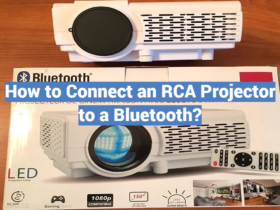
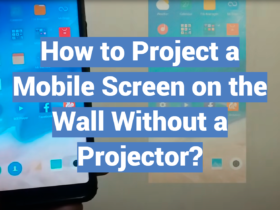

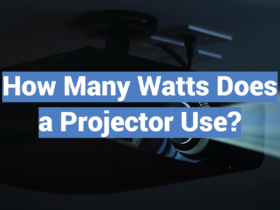
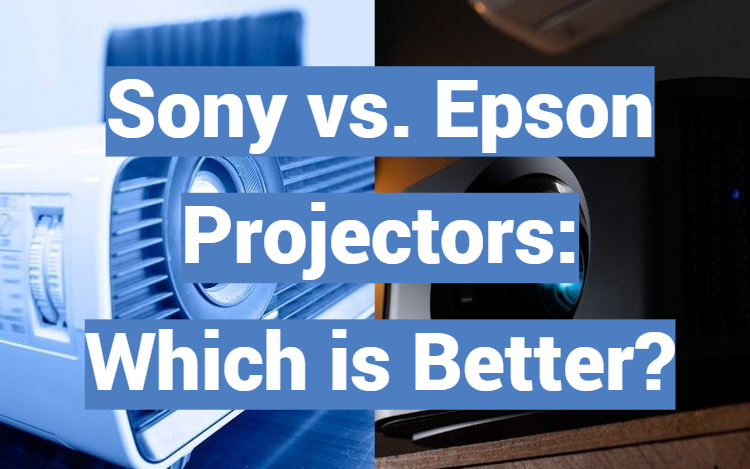
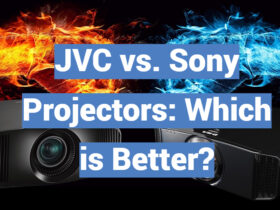
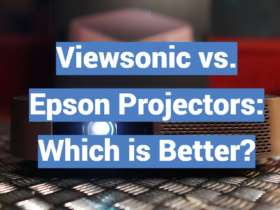
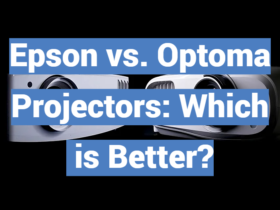
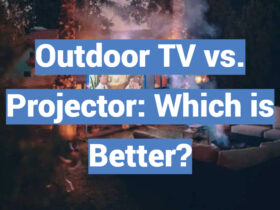
Leave a Review